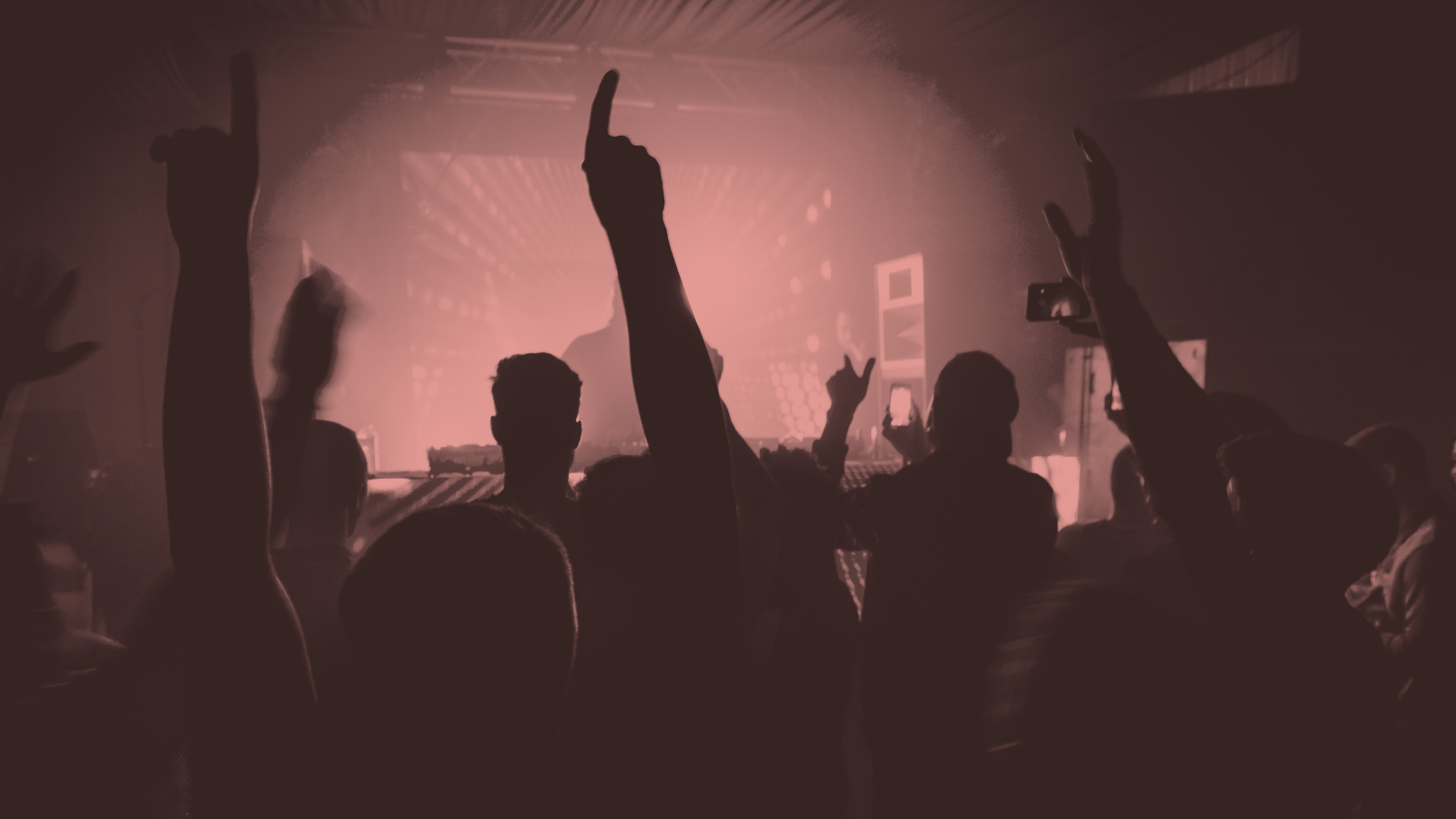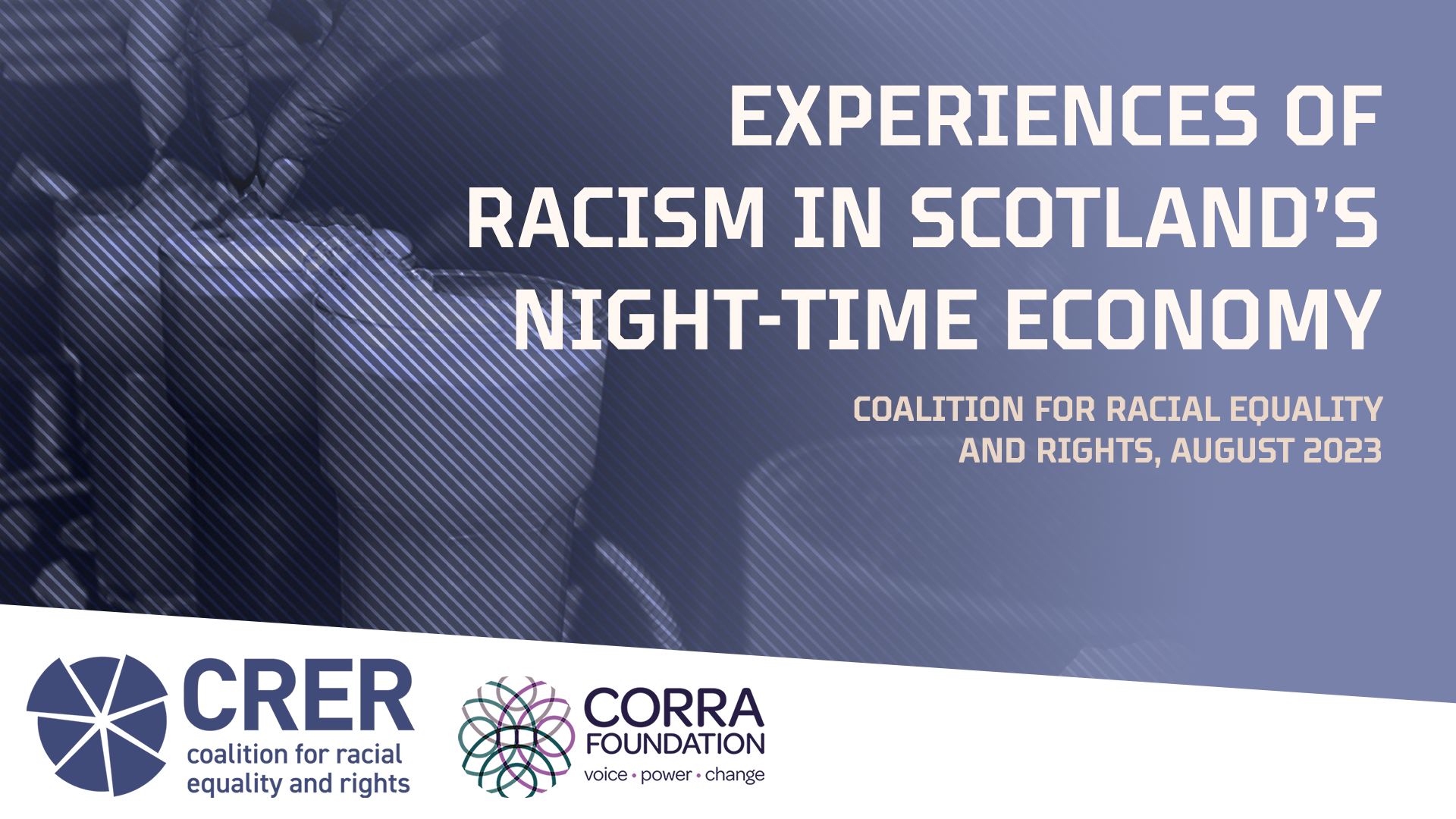
CRER is working to tackle racism and other forms of prejudice within Scotland’s night-time economy.
Bars, nightclubs and music venues play a key role in Scotland’s social, cultural and economic landscape, providing employment, entertainment, social spaces and a sense of community and belonging to many.
These spaces form a central part of Scotland’s night-time economy, which generally describes any economic activity taking place after people finish daytime employment or education.
However, racism remains a prevalent issue within Scotland’s night-time economy. This can take a number of forms, ranging from overtly racist abuse, harassment and violence to more subtle expressions of prejudice, like bias, racial profiling and stereotyping.
As a result, not all bars, pubs and nightclubs are welcoming spaces to people from Black and minority ethnic backgrounds, which can discourage them from fully participating in the night-time economy and enjoying all of the live music, dance and socialising that can come with it.
Since 2022, the Coalition for Racial Equality and Rights (CRER) has been working to raise awareness of these issues and inequalities by producing research, drafting policy recommendations and facilitating community conversations around the challenges facing them in the night-time economy.
Our work to date
-

Experiences of Racism in Scotland's Night-time Economy
In August 2023, CRER published new research highlighting the serious and widespread issue of racism in Scotland’s night-time economy, which contribute to some pubs, bars and nightclubs becoming hostile environments for many Black and minority ethnic (BME) people.
This mixed methods research used the authentic lived experience of young BME people alongside digital and field-based research to explore cultural and systemic racism within Scottish nights out and how this affects people’s participation in the night-time economy and associated sub-cultures.
-

Do bars and nightclub bouncers in Glasgow treat BME groups differently from their white counterparts?
As part of a wider research project about racism in Scotland’s night-time economy, we went undercover in Glasgow’s city centre to learn more about racial profiling and how bouncers and other security personnel treat Black and minority ethnic groups compared to their white counterparts.
-

Inclusive nightlife for LGBT+ people from Black and minority ethnic backgrounds
Mahasin from Exhale.Group writes about the unique challenges facing LGBT+ people from BME backgrounds in Scotland’s night-time economy, including prejudice in nightlife cultures and a lack of financial resources for organising community-led events.
-

Information and guidance for Scottish licensing boards
The Scottish licensing system should have an active role in challenging and safeguarding against racism and other forms of prejudice and discrimination.
This guidance provides recommendations to help promote a night-time economy that is safe inclusive and welcoming for all.
Community Conversations
Clubbing for Wellbeing
In August 2024, we teamed up with Exhale.Group - an organisation working to support Queer, Trans and Intersex People of Colour (QTIPoC+) in Glasgow and Scotland - to discuss the unique issues facing LGBT+ people from Black and minority ethnic backgrounds in night-life spaces.
Members of the community were brought together for a tailored workshop led by nightlife organiser and nightlife wellbeing officer Aki Hassan.
Interested in learning more or getting involved?
We all have a duty to challenge racism, and we’re strongest when we work together.
If you would like to find some time to discuss this work and how we can collectively make Scotland’s night-time economy safer, fairer and more inclusive, please reach out to us at research@crer.org.uk.
This work has been supported by the Corra Foundation as part of their ongoing efforts to tackle racism in Scotland, including Islamophobia and antisemitism.
Learn more about these grants here.


